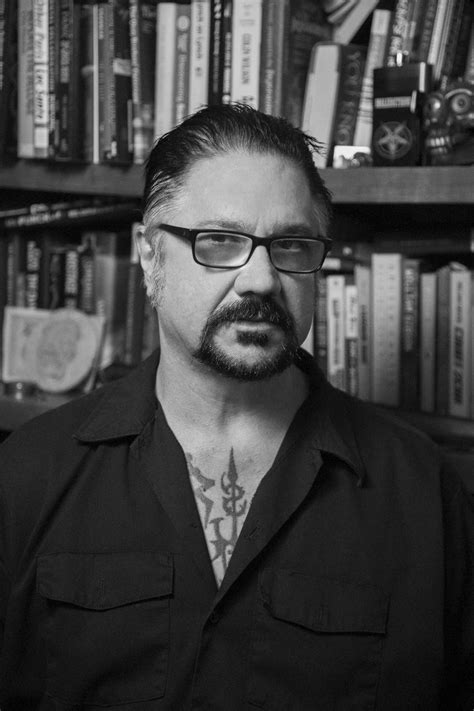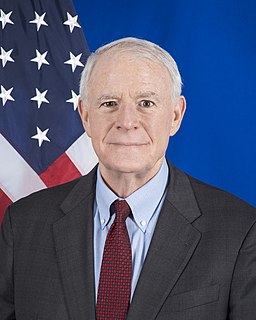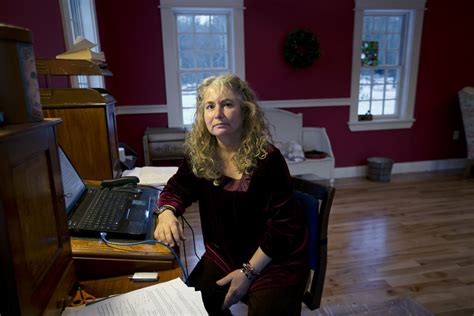A Quote by Marcel Proust
I find very reasonable the Celtic belief that the souls of our dearly departed are trapped in some inferior being, in an animal, aplant, an inanimate object, indeed lost to us until the day, which for some never arrives, when we find that we pass near the tree, or come to possess the object which is their prison. Then they quiver, call us, and as soon as we have recognized them, the spell is broken. Freed by us, they have vanquished death and return to live with us.
Related Quotes
We exist only by virtue of what we possess, we possess only what is really present to us, and many of our memories, our moods, our ideas sail away on a voyage of their own until they are lost to sight! Then we can no longer take them into account in the total which is our personality. But they know of secret paths by which to return to us.
This is where you first failed us. You gave us minds and told us not to think. You gave us curiosity and put a booby-trapped tree right in front of us. You gave us sex and told us not to do it. You played three-card monte with our souls from day one, and when we couldn't find the queen, you sent us to Hell to be tortured for eternity. That was your great plan for humanity? All you gave us here was daisies and fairy tales and you acted like that was enough. How were we supposed to resist evil when you didn't even tell us about it?
And so it is with our own past. It is a labour in vain to attempt to recapture it: all the efforts of our intellect must prove futile. The past is hidden somewhere outside the realm, beyond the reach of intellect, in some material object (in the sensation which that material object will give us) of which we have no inkling. And it depends on chance whether or not we come upon this object before we ourselves must die.
Our sense of identity is in large measure conferred on us by others in the ways they treat or mistreat us, recognize or ignore us, praise us or punish us. Some people make us timid and shy; others elicit our sex appeal and dominance. In some groups we are made leaders, while in others we are reduced to being followers. We come to live up to or down to the expectations others have of us.
Some people think elections are a game: who's up or who's down. It's about our country. It's about our kids' future. It's about all of us together. Some of us put ourselves out there and do this against some difficult odds. We do it, each one of us, against difficult odds. We do it because we care about our country. Some of us are right, and some of us are not. Some of us are ready, and some of us are not. Some of us know what we will do on day one, and some of us haven't thought that through.
There are lone figures armed only with ideas, sometimes with just one idea, who blast away whole epochs in which we are enwrapped like mummies. Some are powerful enough to resurrect the dead. Some steal on us unawares and put a spell over us which it takes centuries to throw off. Some put a curse on us, for our st idity and inertia, and then it seems as if God himself were unable to lift it.
The ever-present expectancy of death is never far removed from any of us - whether we realize it or not. None of us can avoid it. It comes alike to the great and to the unknown; to the righteous and to the unrighteous. Wherein we differ is not in our ability to avert it, but in the preparedness with which we meet it. At such times some question the judgments of God. Some find bitterness because of the circumstances and because of the seeming untimeliness of death.
God, to prevent all escape, hath sown the seeds of death in our very constitution and nature, so that we can as soon run from ourselves, as run from death. We need no feller to come with a hand of violence and hew us down; there is in the tree a worm, which grows out of its own substance, that will destroy it; so in us, those infirmities of nature that will bring us down to the dust.
None of us like the concept of law because none of us like the restraints it puts on us. But when we understand that God has given us his law to aid us in guarding our souls, we see that the law is for our fulfillment, not for our limitation. The law reminds us that some things, some experiences, some relationships are sacred. When everything has been profaned, it is not just my freedom that has been lost- the loss is everyone's. God gave us the law to remind us of the sacredness of life, and our created legal systems only serve to remind us of the profane judgments we make.
And it is in this darkness, when there is nothing left in us that can please or comfort our own minds, when we seem to be useless and worthy of all contempt, when we seem to have failed, when we seem to be destroyed and devoured, it is then that the deep and secret selfishness that is too close to us for us to identify is stripped away from our souls. It is in this darkness that we find liberty. It is in this abandonment that we are made strong. This is the night which empties us and makes us pure.
For, after all, put it as we may to ourselves, we are all of us from birth to death guests at a table which we did not spread. The sun, the earth, love, friends, our very breath are parts of the banquet.... Shall we think of the day as a chance to come nearer to our Host, and to find out something of Him who has fed us so long?
Remember us in your prayers that we grow not weary in well doing. It is hard to work for years with pure motives, and all the time be looked upon by most of those to whom our lives are devoted as having some sinister object in view. Disinterested labor - benevolence - is so out of their line of thought, that many look upon us as having some ulterior object in view; but He who died for us, and Whom we ought to copy, did more for us than we can do for any one else. He endured the contradiction of sinners. We should have grace to follow in His steps.
As we live our human lives, let us be like the water. Let us be conscious of the flow. Let us not forget the great ground of being that draws us on through life. Let us live in a knowing hope, aware that all being is in transition, that all movement is back to the source. Let us treat those around us as reminders of our illusionary individuality. We know that they are us and we are them connected in ways we cannot fathom. Let us grow in compassion for all beings, for they share our journey.





































